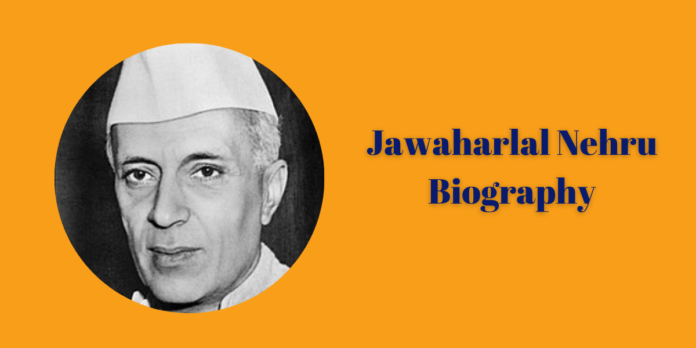Jawaharlal Nehru Biography
Jawaharlal Nehru Biography: Jawaharlal Nehru, born on November 14, 1889, in Allahabad, India, and passed away on May 27, 1964, in New Delhi, was the first prime minister of independent India from 1947 to 1964. He played a crucial role in establishing parliamentary government and is known for his neutralist policies in foreign affairs. Here’s a simplified overview of his life:
Jawaharlal Nehru Early Life
Nehru was born into a family of Kashmiri Brahmans in Delhi, known for administrative skills. His father, Motilal Nehru, was a prominent lawyer in the Indian independence movement. Nehru’s education included home tutoring and schooling in England at Harrow and Trinity College, Cambridge. He became a barrister but wasn’t passionate about law.
Jawaharlal Nehru Political Career
Returning to India, Nehru initially attempted a legal career but found himself drawn to nationalist ideals. Influenced by Mahatma Gandhi, he actively joined the Indian National Congress. His political journey began in 1919, and by 1929, he became the party’s president, advocating complete independence.
Jawaharlal Nehru Struggle for Independence
Nehru’s commitment to India’s freedom intensified during periods of imprisonment, amounting to more than nine years. His association with Gandhi and the Indian National Congress led to significant political developments, including the Lahore session in 1929, where complete independence became the party’s goal.
Nehru’s commitment to the cause of independence and his dynamic leadership skills propelled him to the forefront of the nationalist movement. He participated in various protests, including the Salt March in 1930, and faced multiple imprisonments for his activism against British rule. Nehru’s eloquence and articulation made him a popular leader among the masses.
Jawaharlal Nehru First Prime Minister of India
India gained independence on August 15, 1947, and Nehru became its first prime minister. His leadership focused on democratic socialism, unity, and secularism. He worked to modernize India and address social issues, such as the reform of Hindu civil laws to grant equal rights to widows.
He played a pivotal role in shaping the new nation and laying the foundations of its democratic institutions. Nehru’s vision for India was characterized by secularism, socialism, and a commitment to social justice. He implemented several key policies aimed at economic development, education, and land reforms.
Nehru’s leadership faced challenges, including the partition of India in 1947, leading to the creation of Pakistan. He had to navigate the complex issues arising from communal tensions and refugee rehabilitation. The Indo-China war of 1962 was another significant challenge during his tenure.
Nehru’s foreign policy, emphasizing nonalignment, faced challenges, especially during the Sino-Indian War of 1962. The conflict strained relations with China and tested Nehru’s nonalignment principles.
Jawaharlal Nehru Legacy
Jawaharlal Nehru’s legacy includes shaping India’s early post-independence years, fostering democratic values, and promoting a vision of a modern, progressive nation. His emphasis on education, industrialization, and social justice left a lasting impact on the country. Despite challenges, he remains an influential figure in India’s history.
Jawaharlal Nehru Biography FAQs
How to write biography of Jawaharlal Nehru?
Jawaharlal Nehru was born in Allahabad on November 14, 1889. He learned at home with private tutors when he was young. At fifteen, he went to England. After two years at Harrow, he went to Cambridge University and studied Natural Sciences. Later, he became a lawyer after being called to the Bar from Inner Temple.
What is the real name of Nehru?
Jawaharlal Nehru was born on November 14, 1889, in Allahabad, which was part of British India. His dad, Motilal Nehru, was a successful lawyer who worked hard to become wealthy. Motilal was part of the Kashmiri Pandit community and even became the president of the Indian National Congress two times, in 1919 and 1928.
Why Nehru is called Pandit?
Jawaharlal Nehru was born in a place called Prayagraj, which used to be known as Allahabad. Because he was connected to the Kashmiri Pandit community, people called him Pandit Nehru. Indian children affectionately called him Chacha Nehru. His birthday, on November 14th, is celebrated as Children's Day.
What is Nehru famous for?
Jawaharlal Nehru was India's first prime minister after it became independent. Before that, he was a key leader in the Indian National Congress, drawing support from intellectuals and young people, and playing a big role in the movement for independence.
Recommended Articles
Complete List of Presidents of India from 1950 to 2024
